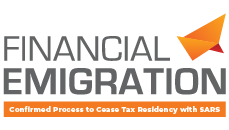1 MARCH 2020
DO YOU AS EMPLOYER HAVE ALL YOUR DUCKS IN A ROW?
The amendment to section 10(1)(o)(ii) of the Income Tax Act (“foreign employment exemption”) takes effect from 1 March 2020. Presumably, employees that would be affected thereby have done the necessary planning to sidestep any potential additional tax that may follow the amendment; or at least did their homework to attenuate the impact thereof. A question with perhaps a less discernible answer is if employers with internationally mobile employees have done the same?
For the Johnny-come-lately employer, it is perhaps important that we provide a refresher course on what the amendment entails. Currently, the foreign employment exemption permits South African tax residents to fully exempt their employment income earned outside South Africa, provided they spend sufficient time abroad. From 1 March 2020, foreign earned employment income is no longer fully exempt and any amount above R1 million will be taxable. The result is a larger tax bill and the question is who will pick up the tab?
Why Should Employers Be Concerned?
This may come as a massive surprise to some, but aside from the many administrative difficulties that employers will have to deal with, in some instances, the additional tax cost will be borne by the employer, as opposed to the employee. The reason for this misfortune is simple; the employee accepted the assignment on the premise of a set amount of take-home pay and, assuming these employees are likely some of the company’s best resources, the employer may want to recompense the employees for the additional taxes if they wish to retain the said resources.
The realisation that you as the employer may have to foot the bill is only the first step to ensure that you are equipped to deal with the amendment. Ideally, the employer should tackle this headache by first planning where they assign and resource their expats from in a careful manner to mitigate the additional tax cost as far as possible, followed by an equally difficult task, which is to adjust these expatriates’ remuneration packages to ensure they earn a market related net-pay whilst maintaining their agreed upon assignment remuneration packages as per their specific conditions.
Expat Planning
It is important to note that the additional tax cost can be managed effectively with proper planning. By expat planning, we mean the employer needs to consult each expatriate to gauge their flexibility and educate them accordingly on how this change impacts them. Depending on the circumstances, the effect of the amendment may be neutralised if certain employees are simply re-assigned to a different jurisdiction. For lower tax jurisdictions, the employer and the employee may want to consider formalizing the expatriate’s emigration, if appropriate, as these cases will likely occasion the highest additional tax cost.
It is, however, not possible to give a blanket solution to reduce the tax cost, as each expatriate’s factual matrix must be considered individually.
Tax Gross-Up
Where the additional tax cost cannot be neutralised entirely, the employer will have to adjust the employee’s remuneration package. This boils down to a tax gross-up, which accounts for the additional tax liability. If you have an ounce of wisdom, this is not an exercise that should be done unaided.
The tax gross up can be conducted in different ways and we would always advise that the employer call in the assistance of a remuneration and tax specialist in these instances. We often see this being done incorrectly and, with the proliferation of SARS payroll audits, this is not an item where one should take any chances.
Take Away
It would be devastating to lose key resources as a consequence of the incoming law change. In saying that, in the current economic climate, no employer can afford to suffer any unplanned, additional costs.
These will be some of the problems facing employers who simply wait for D-Day to come. The only way to traverse the obstacles of post March 2020 is to plan correctly and be fully prepared.
A unique expat tax calculator is now available for use and provides both employers and individual expatriates the opportunity to explore their tax obligation post-March 2020. The calculator provides flexibility for selecting your own currency and exchange rates and allows for the comparison of pre-March 2020 versus post-March 2020 in order to get a good view of your position for future planning. The calculator is free to use and can be accessed by clicking the button below –






